Mbabane Branch
Physical Address
1st House
Betfusile Street
Mbabane
Postal Address
PO Box 1337
Mbabane
Swaziland
Telephone Number: +268 2404 1961/5
Fax Number: +268 2404 4535
Branch 6-Digit Code: 280164
Corporate Place Branch
Physical Address
Corporate Place
2nd Floor
Swazi Plaza
Postal Address
PO Box 261
Eveni
H103
Telephone Number: +268 2404 3431
Fax Number: +268 2404 3121
Branch 6-Digit Code: 281264
The Gables Agency
Physical Address
Gables Shopping Complex
Shop No 3
Ezulwini
Postal Address
PO Box 308
Matsapha
Swaziland
Telephone Number: +268 2416 2777
Fax Number: +268 2416 2804
Branch 6-Digit Code: 281064
Matsapha Branch
Physical Address
Lot 171
1st Avenue
Matsapha
Postal Address
PO Box 308
King Mswati III Avenue
Matsapha
Telephone Number: +268 2518 7570/5
Fax Number: +268 2518 7805
Branch 6-Digit Code: 281064
Mahhala Agency
Physical Address
Lot 445
Matsamo Shopping Complex
Matsapha
Postal Address
PO Box 308
Matsapha
Swaziland
Telephone Number: +268 2518 7611
Fax Number: +268 2518 7525
Branch 6-Digit Code: 281064
Manzini Branch
Physical Address
Makabongwe House
Nkoseluhlaza Street
Manzini
Postal Address
PO Box 645
Manzini
Swaziland
Telephone Number: +268 2505 3181/5
Fax Number: +268 2505 3188
Branch 6-Digit Code: 282064
Bhunu Mall Agency
Physical Address
Bhunu Mall Shopping Complex
Shop No U16
Ngwane Street
Manzini
Postal Address
PO Box 645
Manzini
Swaziland
Telephone Number: +268 2505 7950/1
Fax Number: +268 2505 7972
Branch 6-Digit Code: 282064
Big Bend Branch
Physical Address
Shop No 1
Matata Shopping Complex
Big Bend
Postal Address
PO Box 2
Matata
Swaziland
Telephone Number: +268 2364 6000/5
Fax Number: +268 2364 6006
Branch 6-Digit Code: 286064
Nhlangano Agency
Physical Address
Plot 239/240
4th Street
Nhlangano
Postal Address
Private Bag 5
Nhlangano
Swaziland
Telephone Number: +268 2207 9321
Fax Number: +268 2207 9327
Branch 6-Digit Code: 282164
Pigg's Peak Branch
Physical Address
15 Mambo House
Evelyn Baring Street
Piggs Peak
Postal Address
PO Box 464
Piggs Peak
Swaziland
Telephone Number: +268 2437 1900/3
Fax Number: +268 2437 1894
Branch 6-Digit Code: 282364
Siteki Branch
Physical Address
Plot 127
Jacaranda Avenue
Siteki
Postal Address
PO Box 602
Siteki
Swaziland
Telephone Number: +268 2343 4393
Fax Number: +268 2343 4416
Branch 6-Digit Code: 286064
Simunye Branch
Physical Address
Simunye Plaza
Shop No 38B
Simunye
Postal Address
PO Box 357
Simunye
Swaziland
Telephone Number: +268 2383 8601
Fax Number: +268 2416 2804
Branch 6-Digit Code: 283164
Instalments refer to a set amount you pay for an item over an agreed period. Often, we are attracted by special offers and low monthly instalments that look like very good deals. But 'low' instalments can be deceiving.
It is important to look at the total cost you will pay by adding up the monthly instalments over the payment period. You may find you will pay way more than the cash price. Always check before agreeing to the instalments and where possible, save up and buy the item in cash.
Remember: Check if you are being charged for extras such as delivery, credit life insurance, etc. You have a choice not to take up insurance if you do not want it.
It's always better to save up for something and pay cash, but we know that's not always possible.
There are two types of interest: interest earned (on savings and investments) and interest charged (on loans).
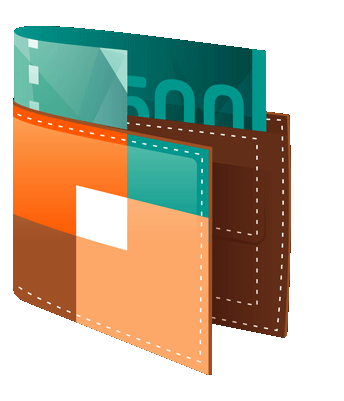
This type of interest is a way to grow your money and is a reward from the bank for saving your money with them. It's extra money you earn for saving your money with a bank or an investment/savings institution.

This is the type of interest charged by a credit provider to lend you money. It's the cost of credit and is usually calculated as a percentage of the amount that you borrow.
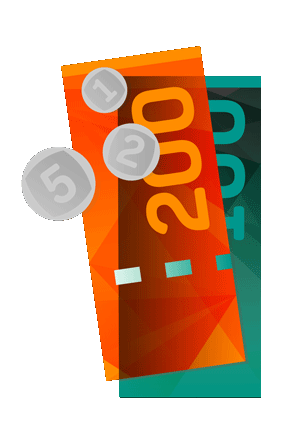
When interest is calculated on the original investment and interest earned, so you earn interest on your interest, helping your money grow quicker.
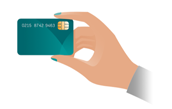
When interest is calculated on the original amount borrowed invested plus any interest charged in previous months or years so you are charged interest on your interest, meaning your debt grows over time.
Instalments refer to a set amount you pay for an item over an agreed period. Often, we are attracted by special offers and low monthly instalments that look like very good deals. But 'low' instalments can be deceiving.
If you are planning to borrow money, there are lots of different places that you can borrow from including: banks, micro-lenders, shops and informal (unregistered lenders) such as loan sharks.
All these places offer different products and their terms and application requirements differ. The risk associated with each lender also differs, so think carefully before signing an agreement or contract.
Taking up credit is a big decision. Before you do, consider the following:

Obtain a quote from the credit provider. It should show how much you will be paying in total.

Find out if there are penalties or rewards for repaying the debt earlier.

Get a copy of the contract and read it at home before you sign.

Make sure you understand the terms of the agreement.

Find out what will happen if you are unable to make the loan repayments on time.
There is no shame is asking for help to manage your debt. It is better to get help than to drown in debt.
Your rights as it relates to credit is protected under the National Credit Act and the National Credit Regulator can assist customers to get help when their rights have been violated. If you have a concern or a problem about the way you have been treated in accessing credit, contact the NCR. Their telephone number is 0860 627 627 and their website address is www.nca.co.za
Physical address:
Plot 184 Ist Floor,
Tlale House Main Mall , Opposite BEDIA.
Postal address:
Office of the Banking Adjudicator
Private Bag 00404
Gaborone
Tel: (0267) 3935409
Fax: (0267)3935406
Email: bankadjud@info.bw
Website: www.banking-adjudicator.org.bw
Credit bureaux keep credit related information of all credit-active consumers, this information is compiled on a credit report or credit profile. Credit grantors submit payment information to the credit bureaux on how well you are repaying your loans. The information submitted is both positive and negative information. The purpose of a credit report is to allow credit grantors to determine if you are eligible for credit, by assessing the amount of credit you already have and also looking at how well you repay existing loans. It is a risk for companies to give you a loan, therefore they must ensure that you can repay it.
Call Centre on 0861 514 131
Online at www.mycreditcheck.co.za
Call Centre on 0861 105 665
Online at www.creditexpert.co.za
Plot 115 Unit 21 Kgale Mews, Gaborone, Botswana
Private Bag 305, Gaborone, Botswana
Email: vgaleromeloe@transunion.co.za
Web: http://www.transunion.co.za
Phone: 0267 390 3535
Fax: 0267 318 1124
Call Centre on 0860 937 000
Online at www.credit4life.co.za

The seller takes back the goods, as well as keeps the money you have already paid for the goods.
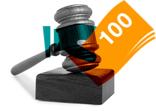
A judgement is a court order that forces you to repay your loans.
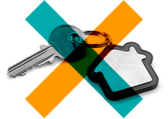
Depending on how big your debt is, the court can order that some of your property (such as furniture, a vehicle, etc.) can be repossessed.
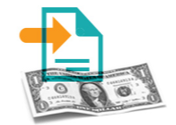
The court will instruct your employer to pay a part of your wages or salary to the creditor as repayment of your debt.
You are over-indebted if you are failing to meet your debt repayments and constantly need to borrow to support your monthly expenses.
a) The first step is to write a list of all the people and businesses that you owe money to.
b) Contact your creditors and explain your situation.
c) When creditors write to you, take their letters seriously and respond.
d) Do not promise to make payments if you cannot afford them. Rather explain the situation and look at making smaller payments over a longer period.
e) Avoid taking more loans to pay the debt you already have
f) Change your lifestyle, cut down on things like entertainment, alcohol, cigarettes, gambling, etc.
g) If you drive an expensive car, consider downgrading to a more affordable car or sell your car and use public transport.
h) Avoid buying groceries on credit.
i) Consult a debt counsellor. Call the National Credit Regulator (0860 627 627) and they will refer you to a debt counsellor near you.
There is no shame is asking for help to manage your debt. It is better to get help than to drown in debt.


